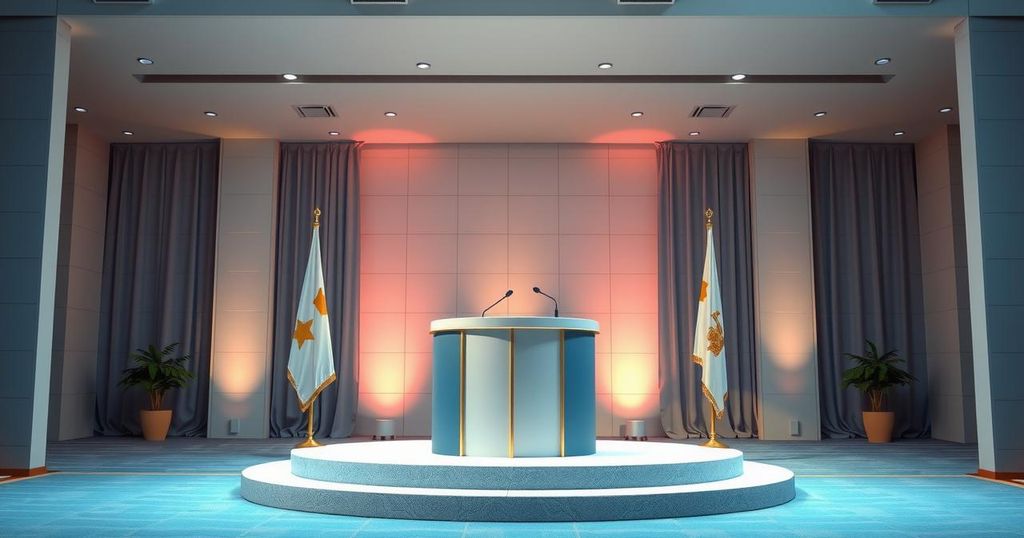Juan Antonio Samaranch Modestly Addresses Favoritism Ahead of IOC Presidential Election

Juan Antonio Samaranch, an IOC presidential candidate, downplayed his status as a favorite before the election. The race includes strong contenders Kirsty Coventry and Sebastian Coe, amid speculation about voter support. The winner will face significant upcoming challenges for future Olympic Games, emphasizing the need for successful events.
On the eve of the International Olympic Committee (IOC) presidential election, candidate Juan Antonio Samaranch sought to downplay his status as a front-runner. Speaking to reporters in Costa Navarino, Greece, he expressed uncertainty about predictions regarding the election outcome, stating, “I really do not know.” The election is poised to be one of the most competitive in IOC history, with three leading candidates: Samaranch, Sebastian Coe, and Kirsty Coventry.
Kirsty Coventry, the sports minister of Zimbabwe, could become the first female and first African president of the IOC. She affirmed her position on the need for change, saying, “Let’s create some change, let’s make sure that happens.” Among the seven candidates, others include Prince Feisal al Hussein, Johan Eliasch, David Lappartient, and Morinari Watanabe. The new president will officially take office on June 23, coinciding with Olympic Day.
There exists speculation that Coventry may initially secure a strong bloc of votes, but may not achieve a majority. Observers believe that Samaranch could benefit in subsequent rounds as candidates are eliminated. The voting body consists of 109 IOC members, including notable figures such as royals and diplomats, making their intentions difficult to gauge. Prince Feisal highlighted the uncertainty, noting, “There is a lot of guesswork what is going on.”
Coventry refrained from directly addressing support from the current president, Thomas Bach, opting instead to focus on the significance of voter intentions. She encouraged voters to consider how they envision the representation of the Olympic movement. Additionally, Samaranch emphasized the confidentiality of votes, asserting that each member should vote based on personal conviction, free from external pressures.
Sebastian Coe, a former athlete and organizer of the 2012 London Olympics, provided minimal comments during a media break. The election process has been characterized by a tightly controlled campaign with limited public engagement from the candidates prior to the election. David Lappartient, president of the International Cycling Union, expressed disappointment regarding the lack of formal presentations.
Should Samaranch win, he will be the 10th president in IOC history, following in his father’s footsteps. He remarked on the importance of focusing on upcoming challenges, including the 2026 Winter Games in Italy and the 2028 Summer Games in Los Angeles, stating, “We must concentrate (on) successful and relevant Olympic Games. The rest comes with success in the games.”
In summary, on the eve of the IOC presidential election, Juan Antonio Samaranch has expressed humility regarding his standing as a candidate while the contest appears highly competitive. Kirsty Coventry and Sebastian Coe are the other key candidates, contributing to a dynamic race with potential historical implications. Voter privacy and independent decision-making have been emphasized by Samaranch and Coventry alike, highlighting the importance of individual electorates in shaping the future of the IOC.
Original Source: abcnews.go.com







